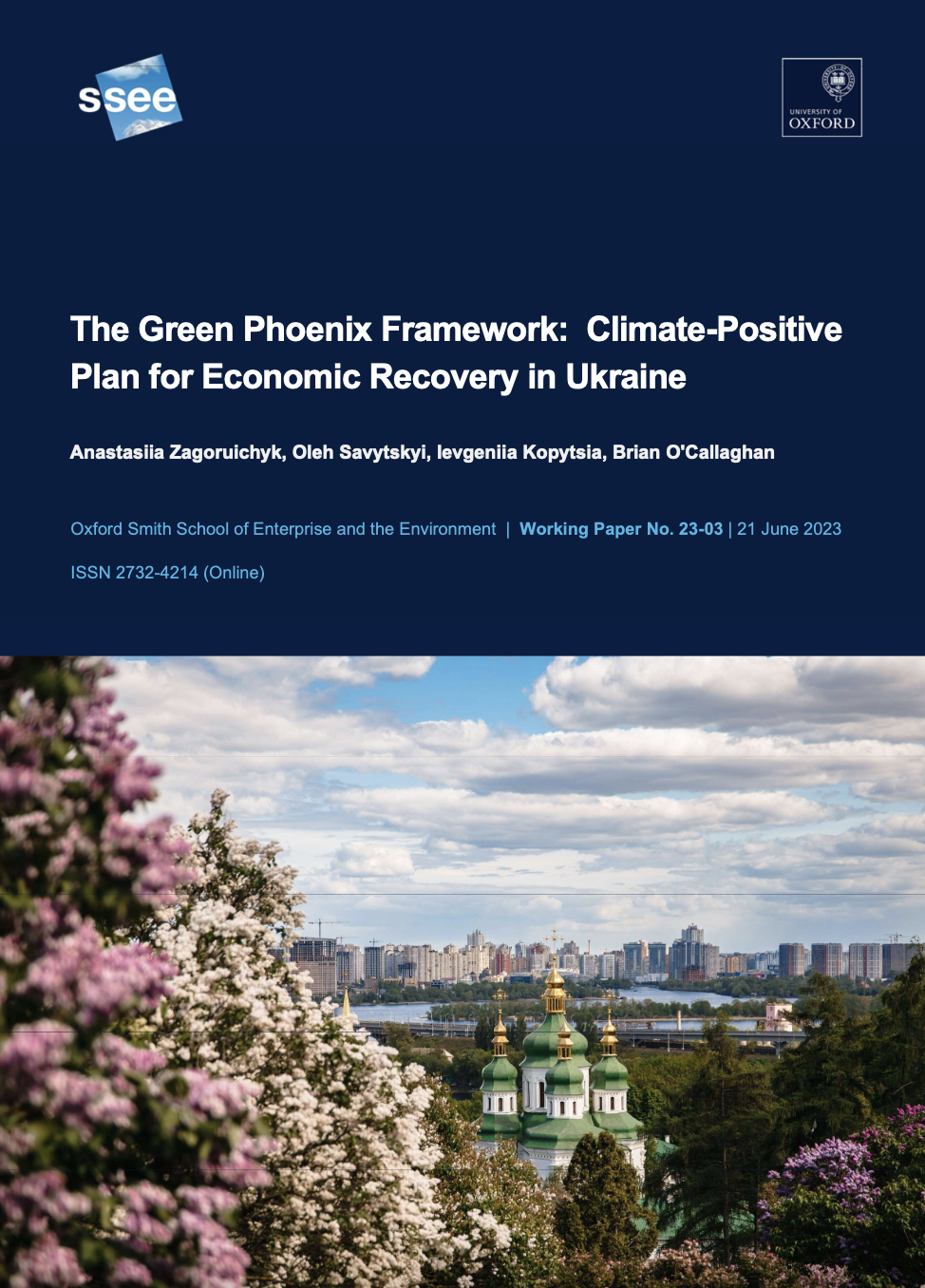Search by key words or by sector (energy, climate, buildings, agriculture, industry, environment, finance, EU accession etc)

On the reconstruction front line: Ukrainian municipalities and the funding landscape
Ukrainian municipalities, local governments, citizens and volunteers are all on the front line. Not only do they face the challenges of war, but they also have to rebuild damaged infrastructure, assist internally displaced persons, provide basic services to the population, and support the army. But is there enough money to fund their vital efforts? And do municipalities have sufficient access to existing financial resources?
This research series by CEE Bankwatch and Ecoaction looks at the complex landscape of existing funding available to Ukrainian municipalities as they seek to meet their reconstruction needs.

Climate Damage Caused by Russia’s War in Ukraine
According to the report by the Initiative on GHG Accounting of War, greenhouse gas emissions attributable to 18 months (or 555 days) of the russian full-scale war in Ukraine total 150 million tCO2e. This is more than the annual GHG emissions from a highly industrialized country such as Belgium. GHG emissions continue to grow in different dimensions of the war, including those related to rebuilding Ukraine.

Shades of Green: Investing in Ukraine’s Recovery
The briefing paper presents pivotal recommendations intended to direct Ukraine towards a prosperous green recovery. It originates from an online discussion conducted in November 2023, organized by the Ukraine Climate Office, WWF-CEE and Ukraine, with the aim of stimulating discourse on the term “green” and its implications.

Roadmap for a climate-neutral, sustainable Ukrainian energy sector and its role in an integrated EU energy market
Postwar reconstruction in Ukraine will be a long and arduous process. The Ukraine Energy Roadmap, offered by the Europe-Ukraine Energy Transition Hub, analyzed the technical, financial, and legal aspects of this challenge; the detailed results are described in the corresponding three studies. IKEM summarizes these studies and provides recommendations across six major themes relevant to the energy transition.

Green Jobs And Post-War Reconstruction Of Ukraine
The study by Razom We Stand and the Resource and Analysis Center "Society and Environment" shows if Ukraine's post-war reconstruction is green, it could create more than 4.2 million additional jobs in five key sectors: transportation, energy, healthcare, education, and water.

Energy efficiency in green recovery – Best practices and opportunities for Ukraine
Ukraine's plans for a sustainable and green recovery need to include energy efficiency standards. The DiXi Group together with BPIE, have brought together their EU expertise and best practices on energy efficiency in buildings, to develop an approach for Ukraine's reconstruction and recovery.

The Green Phoenix Framework: Climate-Positive Plan for Economic Recovery in Ukraine
A new study published by a team of Ukrainian and European researchers from Oxford University’s Smith School of Enterprise and the Environment shows that only 33% of spending in the National Recovery Plan, presented by the Ukrainian government in 2022 in Lugano, is likely to support climate mitigation outcomes - well below the 42% European average of state funding deployed to support economic recovery after the COVID-19 pandemic.

The impact of Russia’s war against Ukraine on the state of country’s soil: Analysis results
This report by Ecoaction shows the impact of military operations on soil in Ukraine. The study assesses ecological and geochemical state of soil in areas of active hostilities to determine the criteria for pollution according to the degree of damage. Based the findings, the study also seeks to propose the main measures for post-war restoration of the soil in Ukraine, taking into account the regional landscapes and geochemical features and types of land use.

Housing and war: housing policy in the first year of the full-scale war
This brief by Cedos is an overview of some of the main trends and changes in the housing sphere in Ukraine since February 2022. It is based on an analysis of decisions by national and local government bodies as well as on public messages and information by official institutions and non-governmental organizations.